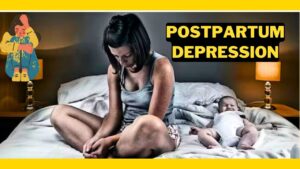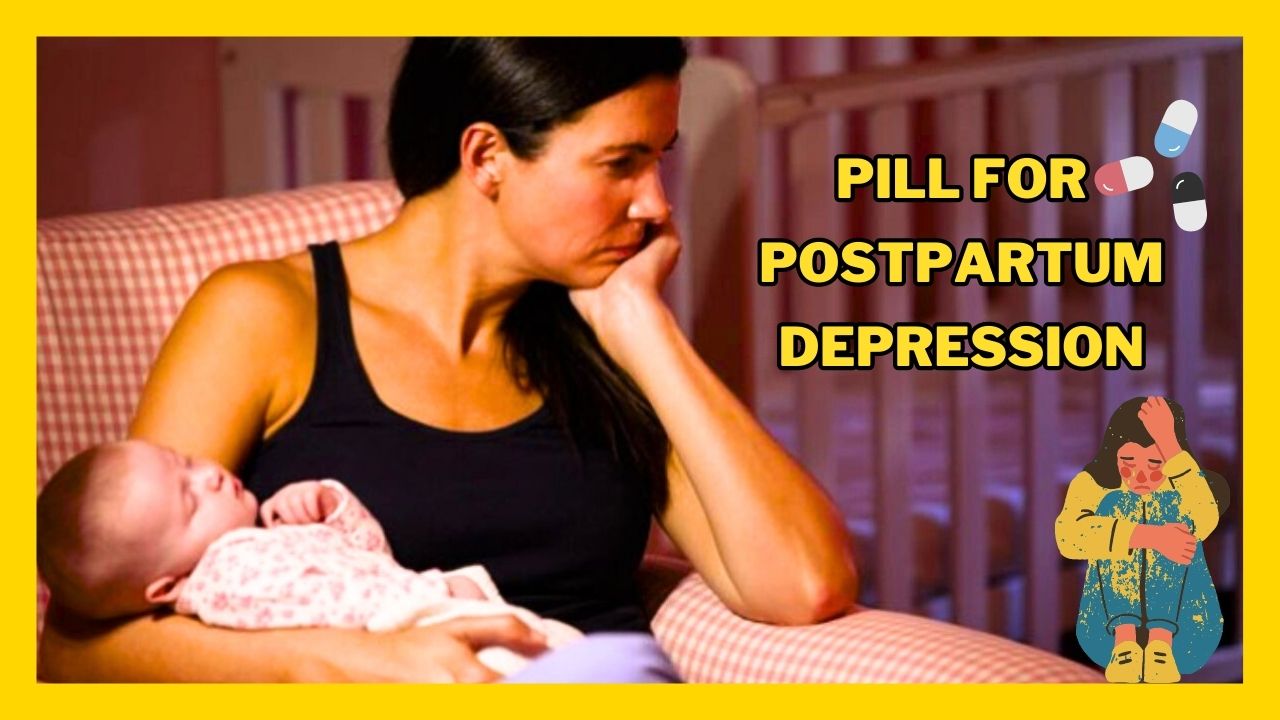FDA Approves Breakthrough Pill for Postpartum Depression this article is about the first-ever pill designed to combat postpartum depression, offering newfound optimism to mothers grappling with this challenging condition.

Dubbed zuranolone, this revolutionary medication is administered daily over a concise two-week period. In a significant stride, clinical trials encompassing women grappling with profound post-birth depression revealed zuranolone’s capacity to alleviate a range of distressing symptoms, such as anxiety, sleep disturbances, and diminished joy, fatigue, guilt, and withdrawal. Astonishingly, relief began to manifest within just three days of commencing treatment.
Dr. Tiffany R. Farchione, Director of the Division of Psychiatry within the FDA’s Center for Drug Evaluation and Research, emphasized the gravity of postpartum depression, Having access to an oral medication This could serve as a valuable choice for numerous women managing intense and potentially life-threatening emotions.
Also Read: CDC vital signs of postpartum depression
This milestone emerges from a collaborative effort between pharmaceutical powerhouses Biogen and Sage Therapeutics, underscoring the significance of the pharmaceutical industry’s dedication to advancing maternal mental health.
With the FDA’s nod of approval, zuranolone takes the spotlight as the pioneering home-based solution for postpartum depression, offering an alternative to the previously available intravenous injection, which entailed a hospital stay of two-and-a-half days.
The data stemming from the zuranolone trials have evoked excitement and anticipation, as Dr. Samantha Meltzer-Brody, Director of the University of North Carolina’s Center for Women’s Mood Disorders and a pivotal figure in zuranolone trials, conveyed, “The data so far are incredibly encouraging and very exciting.”
Also Read: The link between Lifestyle and Cardiovascular disease
However, it’s important to tread cautiously, as the trials extended over a span of 45 days, leaving the long-term impact of zuranolone to be further explored.
While the trials omitted breastfeeding women or those with mild to moderate depression, Dr. Lauren Osborne, a reproductive psychiatrist at NewYork-Presbyterian/Weill Cornell Medicine, underscores the importance of accumulating more data before recommending the medication to this subset.
Also Read CDC: Pregnancy-Related Deaths
The FDA’s contemplation of expanding zuranolone’s approval to encompass clinical depression adds another layer of potential impact, awaiting further deliberation.
Postpartum depression, a challenge commonly encountered by new mothers, affects approximately 1 in 8 women after childbirth, as per a Centers for Disease Control and Prevention report. Regrettably, mental health concerns contribute to nearly 9% of maternal deaths during or within a year post-pregnancy, underscoring the gravity of this issue.
Characterized by its heightened intensity and extended duration, postpartum depression goes beyond the passing feelings of sadness and fatigue commonly linked to childbirth. Its effects are far-reaching, consequences encompass difficulties in bonding with infants and an elevated risk of developmental delays.
Amy Bingham’s personal journey offers a poignant glimpse into the impact of postpartum depression. Following her 2018 delivery, Bingham, a North Carolina resident, found herself grappling with overwhelming depression while tending to her son, Benjamin. Bingham’s involvement in the zuranolone trial was a turning point, leading to a notable reduction in anxiety and an improved emotional connection with her child.
As the medical community continues to unravel the intricacies of zuranolone’s effects, questions linger regarding potential follow-up doses.
Operating at the neurological level, zuranolone, a synthetic hormone, plays a pivotal role in regulating mood and behavior by targeting GABA receptors. These chemical messengers are crucial in managing fear, anxiety, and stress, especially pertinent during the postpartum phase characterized by hormonal fluctuations.
In contrast to current therapies for postpartum depression, zuranolone offers unique benefits, even with the cautionary note regarding potential impairment. In comparison to the 60-hour administration time for Zulresso (brexanolone), a prevalent treatment, zuranolone offers a faster and potentially more transformative solution. Zulresso, while efficacious, brings the risk of excessive sedation and loss of consciousness, whereas zuranolone has so far shown a more favorable safety profile.
Strikingly, the trials for zuranolone did not uncover the common side effects synonymous with antidepressants, such as sexual dysfunction, weight gain, or an augmented risk of suicidal thoughts. Instead, the prevalent side effects included manageable sensations like drowsiness, dizziness, sedation, headache, nausea, and diarrhea.
For individuals contending with mild to moderate postpartum depression, psychotherapy retains its prominence, although zuranolone’s swift symptom alleviation may position it as an appealing option for prompt relief.
Within the sphere of maternal mental well-being, zuranolone stands out as a beacon of hope, holding the promise to efficiently address the complexities of postpartum depression As research advances and insights into its long-term efficacy deepen, zuranolone paves the way for a brighter future for countless new mothers navigating the complexities of childbirth and beyond.
This article was originally published on NBCNews.com

